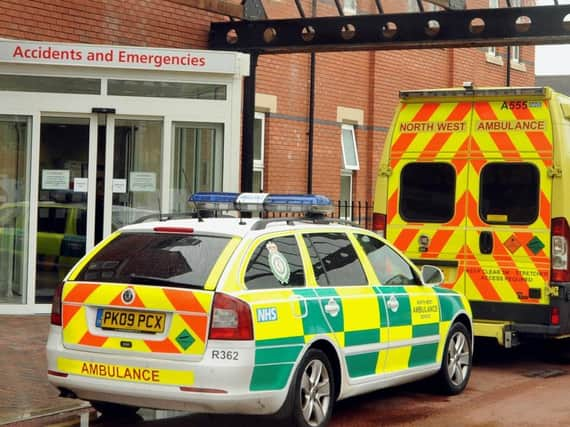Hundreds of patients repeatedly admitted to Wigan A&E in last few months of life


Charity Hospice UK says multiple emergency admissions towards the end of someone’s life can be emotionally distressing, with current care provision putting pressure on “already over-stretched services”.
New data from Public Health England reveals that 300 people in the NHS Wigan Borough Clinical Commissioning Group area were admitted to an emergency ward three times or more in the 90 days before they died in 2018.
Of those, 62 per cent (185) were aged 75 or over.
Advertisement
Hide AdAdvertisement
Hide AdPeople who died after three or more A&E admissions in the last three months of their life made up 9.2 per cent of all deaths in the NHS Wigan Borough CCG area that year – above the national average of 7.5 per cent.
In 2015, the figure in Wigan Borough was 8.4 per cent.
The NHS says several A&E admissions during the last months of someone’s life could indicate that end-of-life care is not being co-ordinated, or that appropriate support to deliver a care plan and manage potential crises is not in place.
Dominic Carter, head of advocacy at hospice and end of life care charity Hospice UK, said: “These new figures showing a marked rise in the proportion of three or more emergency admissions for people in the last three months of life are concerning.
“While some people approaching the end of life may require multiple hospital visits, in many cases repeat emergency admissions to hospital can be very disruptive and emotionally distressing.
Advertisement
Hide AdAdvertisement
Hide Ad“The need for these admissions is often preventable and reflects a failure to provide alternative care through community-based services for people at the end of life.
“Current care provision is skewed towards hospitals which is creating unnecessary pressures on already over-stretched services and means that people are not always getting the right end of life care.
“Hospices play a critical role in preventing unnecessary emergency hospital admissions for people approaching the end of life.
“Many hospices are working in partnerships with their local hospital to avoid or reduce unnecessary hospital admissions.”
Advertisement
Hide AdAdvertisement
Hide AdSimon Jones, director of policy and public affairs at charity Marie Curie, which supports people with terminal illnesses, said many patients with repeat A&E admissions towards the end of their life will have benefited from a form of palliative care.
He added: “The increasing complexity of chronic diseases that people have at the end of their life may make emergency admissions more likely.
“We should be aiming to reduce the number of emergency admissions but, critically, it requires investment. There are a number of areas to focus on - primary care being one of them.
“It plays a huge role in helping to reduce emergency admissions.”